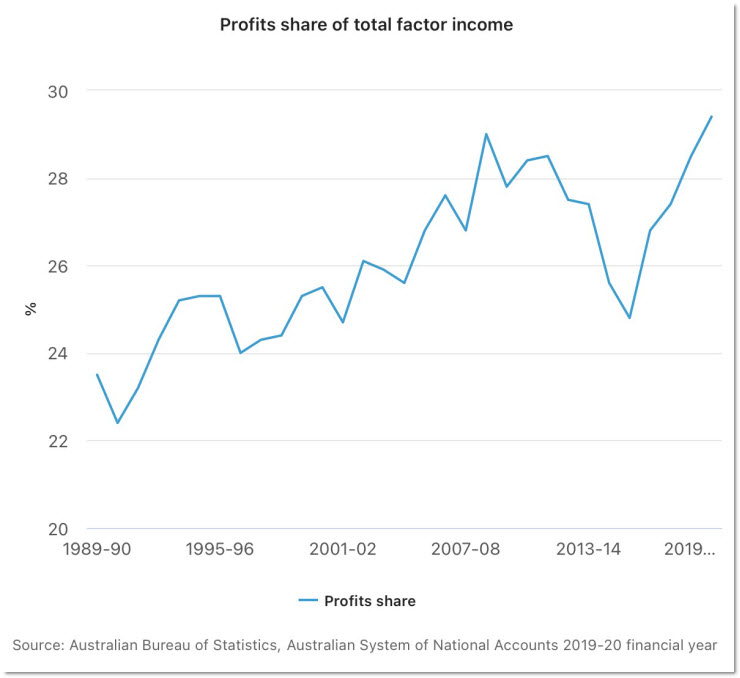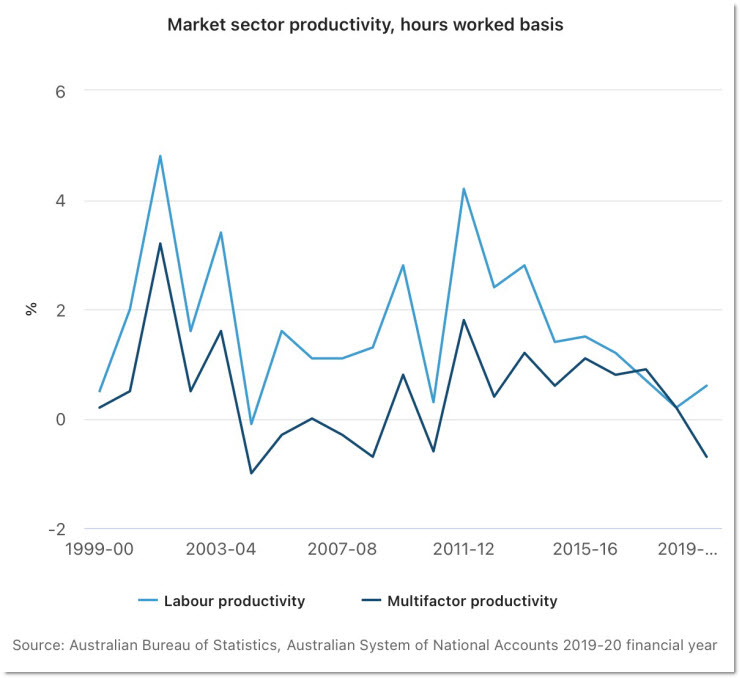
During the 2020 lockdowns, the business lobby showed a surprising concern for Victorians’ mental health: lockdowns were bad because they’d cause a spike in mental illness and suicides far worse than the COVID-19 cases and deaths they’d prevent.
The suicide spike never happened. What did happen was much-needed additional funding for mental health — $3.8 billion over four years — announced in the 2021-22 state budget on Thursday.
But the way business reacted suggests its interest in mental health has waned.
You see, the measures aimed at better prevention, diagnosis and treatment of mental ill health will be funded by a levy: 0.5% for businesses with payrolls above $10 million and 1% for those above $100 million. Critics, including the federal treasurer, claim this will cruel “job creation and confidennce“.
Duplicity aside, the reaction is short-sighted and not grounded in science or economics. Investing in mental health is in everyone’s interest, including business, for several reasons.
The first is the growing burden of mental ill health. Not only will almost half of Victorians experience it during their life, but poor mental health costs the Victorian economy $14.2 billion a year. In addition to expenditure on health and social services, these costs include informal care and lower economic participation and productivity.
The latter both affect business directly. People with poor mental health are less productive and take more sick days. They are more likely to be lose their job and become long-term unemployed. And caring for someone with mental health problems can be stressful and will inevitably affect businesses as well.
The direct costs are dwarfed by the cost of disability and premature death due to mental ill health, suicide and self-inflicted injury, which are estimated to be $151 billion a year nationally — about $39 billion in Victoria on a population basis.
But what makes mental health a really attractive investment target is a high “capacity to benefit”, or amenability to prevention and treatment.
The Productivity Commission estimates that investing $2.4 billion in better mental health services across Australia could generate benefits valued at close to $20 billion a year, including $1.3 billion because of increased economic participation. That’s a fabulous return on investment.
For context, the 2021 federal budget allocated $2.3 billion over four years to it, funded by borrowing and reallocation from other areas of spending (which may explain the lack of outcry).
Can business afford the levy? The latest national accounts suggest it can. In 2019-20, company profits made up almost 30% of national income (figure) — the highest share in recorded history — while the share of wages, at just over 50%, was the lowest since the 1960s.

This trend can’t be explained by higher business efficiency because the data shows labour productivity outpacing multifactor productivity in all but one of the past 20 years.

It’s also no secret that business profited handsomely from the pandemic through COVID-related government subsidies. According to the ABS “subsidies that were not used by businesses to pay wages or operating expenses were retained in profits”.
Given the these factors, perhaps it’s time business gave a bit back?
In fact, aside from the levy, employers can do more than make a modest contribution to government programs. They can directly improve their workers’ mental health by offering better conditions and workplace culture, both powerful determinants of health and well-being as well as driving productivity and performance.
For example, management practices that give workers a degree of discretion and control over how they perform their tasks have been found to improve health, well-being and productivity in sectors ranging from automotive production to healthcare.
The famous Whitehall studies of British civil servants observed an association between these factors and premature death. The first study, conducted between 1967 and 1977, found that workers in the lowest grade were twice as likely to die prematurely from chronic illness than their colleagues higher up the chain — even when risk factors like obesity, smoking, physical activity, blood pressure and baseline illness were accounted for.
A second study (1985-88) produced similar results. It also found that a lack of job control and an unsupportive work culture were important drivers of mental ill health, and were associated with longer absences.
Investing in mental health yields a good social and economic return and businesses will be among the main beneficiaries. Instead of whining about a levy that is modest in the current microeconomic context, business should examine how it can directly contribute towards improving the mental health of its employees.
Should employers take care of business by helping fund mental health measures? Let us know by writing to letters@crikey.com.au. Please include your full name to be considered for publication in Crikey’s Your Say section.








Job insecurity, constant pressure on productivity gains, low wages and ever increasing inequity are all major contributors to mental health problems. Treating the causes rather than the diseases is not on this government’s agenda. People might get ideas above their station if they were treated as human beings rather than economic units.
The economic argument put here is obviously sound. But the federal government gave up on any sort of rational economics in favour of donors and culture wars years ago.
Dealing with the mental health crisis of work is something that really needs a government push. A system that burns out, uses up and damages employees is of little use to businesses if those employees can be replaced with relative ease. It’s only if it’ll start to hurt businesses that there might be cause to address it, and even then it would have to complete with the profit and power motives that drive a lot of business.
So it’ll be interesting to see what the Victorian Government will achieve with this. Hopefully it does something for the better. I don’t think the move can be written off one way or the other until it’s undertaken and measured.
I do suggest rather than spending all this money on mental health, there needs to be a review of prevailing attitudes around mental health problems, in my view there needs to be more money going into inclusive education, at all levels so that everyone with mental health or disabled job applicants get a fair go…
Many businesses owners can be very critical and unwilling to employ people with mental health issues or disabilities no matter how well educated or trained/ or experienced they may be, they’re especially less likely to employ people with mental health issues in the first place, rather than run fowl of the law they will justify avoiding employing those with mental health issues/disabilities, referring to other “missing” requirements or gaps in the persons CV, or use some nefarious reason ie increases in insurance or OH&S associated problems/expenses..
I do know that there are studies that bare this out, there’s often a tendency to rule people with mental health problems/disabilities out of the pool of applicants, because of many factors, but I would suggest it boils down to fear of dealing with someone who is different..
I know a lot of people that have had to keep their mental health status secret, as they know it will be a huge mark against them in the initial HR employee selection process, they’re caught between a rock and a hard place if they admit they have an organic mental health issue, they’re unlikely to be selected for the advertised position in the first place, if they hide their illness and the employer, employs them and then finds out, they then run the risk of being sacked, this puts these people in an extremely tenuous and difficult position, they can’t win, this is why so many people with disabilities/mental health issues, fear going out and looking for a job..
This too me is where the law needs to recognise this, close the loopholes and require employers to do so much better, why does the potential employee have to wear the responsibility of a system that is technically supposed to support them, but does the opposite..
How do I know this?
When employers start whittling down the applicants, many employer’s and people in general still lack education and understanding around organic mental health disorders, and disabilities in general, a lot of people have very outdated views around mental health, and the disorders that are a part of this, unfortunately this is a reality for the many people who have to cope with this type of prejudice towards them in our society..
If there’s any doubt, the now somewhat older interview with Stella Young on SBS’s current affair program Insight on jobs, and disability highlights just how difficult it is for those with obvious disabilities, let alone for those with mental health issues..
SBS Insight – Jobs and disability – QSSShttp://www.qsss.com.au › 2014/08 › jobs-and-disability
I have a friend who has schizophrenia with co-morbidity’s, she decided years ago that she would be upfront and honest about her mental illness, being honest and open on her CV, when she’s applied for jobs, and made it clear what her mental health issues are, she’s had only a couple of hospitality/cafe retail casual jobs in specific settings for people with disabilities to work in, and sporadically, short term jobs many years ago, since then she’s had no employment for the last 15 years, despite her years of voluntary retail work at various charity shops, has led nowhere, and so she has been sidelined and living on DSP since then, she’s always wanted to work, but has continually missed out on a lot of “opportunities” due to her honesty around her mental illness, it seems like people like my friend are the first ones to be taken out of the initial pool of applicants for a job.
Plus also it seems that the job providers only seem to have hospitality or low skilled jobs available for people like my friend, like working in an abattoirs for instance which is completely and utterly inappropriate for someone with a mental health issue, it seems like employment consultantancy’s seem to have very little understanding or real job opportunities available for people like my friend…
Employers can bang on about wanting to improve conditions or stop complaining about ongoing issues around mental health, if they were more inclusive in the first place they would be far more believable, people with organic mental health problems would be more inclined to believe them, they maybe trying to protect their employees, it doesn’t sound like it too me, more likely they are unwilling to actually accommodate those who are struggling to either enter the workforce/or get another job, due to the continual high bar (they keep in place)……
I think business will find that this becomes obligatory pretty soon. It won’t be just a matter of having an EAP either. It will become a matter of risk compliance and prevention.